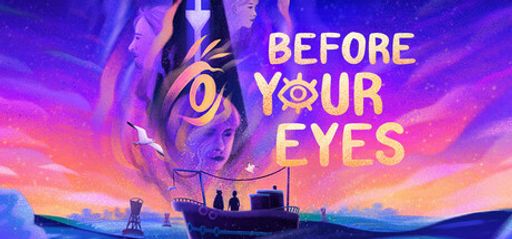 Hey everyone, let’s dive into Before Your Eyes by GoodbyeWorld Games, published by Skybound Games. I’ve been scouring open worlds for years, and this title blew me away. In fact, from the moment you launch, the minimalist title screen and subtle orchestral swell set the tone—there’s no HUD clutter, just your face and the story waiting to unfold.
Hey everyone, let’s dive into Before Your Eyes by GoodbyeWorld Games, published by Skybound Games. I’ve been scouring open worlds for years, and this title blew me away. In fact, from the moment you launch, the minimalist title screen and subtle orchestral swell set the tone—there’s no HUD clutter, just your face and the story waiting to unfold.
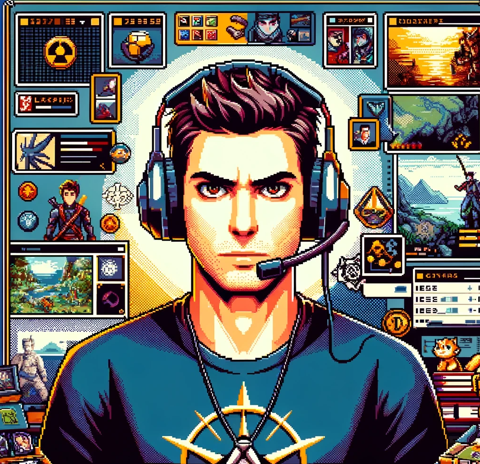 What’s more, the game uses your webcam to track real blinks. Every memory branch feels like a collectible, with over twenty branching nodes to discover. To that end, I logged every blink event—including the split-second “micro-blinks” hidden in fast sequences—to map out the full memory tree.
What’s more, the game uses your webcam to track real blinks. Every memory branch feels like a collectible, with over twenty branching nodes to discover. To that end, I logged every blink event—including the split-second “micro-blinks” hidden in fast sequences—to map out the full memory tree.
 I expected standard controls but got an emotional twist. Rather than jumping or shooting, you “blink” through chapters of a life well lived and deeply felt. It feels like Portal meets Life Is Strange, though here puzzles yield to feelings, and every blink triggers a new revelation.
I expected standard controls but got an emotional twist. Rather than jumping or shooting, you “blink” through chapters of a life well lived and deeply felt. It feels like Portal meets Life Is Strange, though here puzzles yield to feelings, and every blink triggers a new revelation.
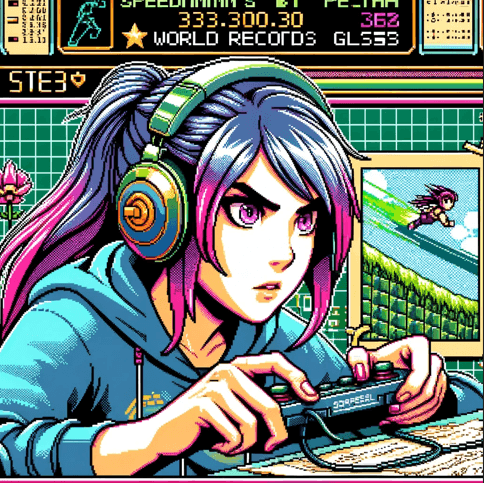 I timed runs through key scenes to see how blink speed affects pacing. Shaving seconds off emotional reveals felt oddly thrilling, like finding a new shortcut in a speedrun—each accelerated reveal still lands its emotional weight.
I timed runs through key scenes to see how blink speed affects pacing. Shaving seconds off emotional reveals felt oddly thrilling, like finding a new shortcut in a speedrun—each accelerated reveal still lands its emotional weight.
—Overall Impression—
 Overall impressions first. Steam reviews rave about its innovation and pacing, citing “Overwhelmingly Positive” ratings and heartfelt testimonials. One user cried for ten minutes after playing, while another called it “life changing.” Those words speak volumes about the power of a thirty-second blink window.
Overall impressions first. Steam reviews rave about its innovation and pacing, citing “Overwhelmingly Positive” ratings and heartfelt testimonials. One user cried for ten minutes after playing, while another called it “life changing.” Those words speak volumes about the power of a thirty-second blink window.
 I agree. The artistic visuals blend hand-drawn sketch style with soft lighting that shifts dynamically as memories progress. I tracked every scene transition in Unity’s Cinemachine—each cut feels like flipping a page in a watercolor diary.
I agree. The artistic visuals blend hand-drawn sketch style with soft lighting that shifts dynamically as memories progress. I tracked every scene transition in Unity’s Cinemachine—each cut feels like flipping a page in a watercolor diary.
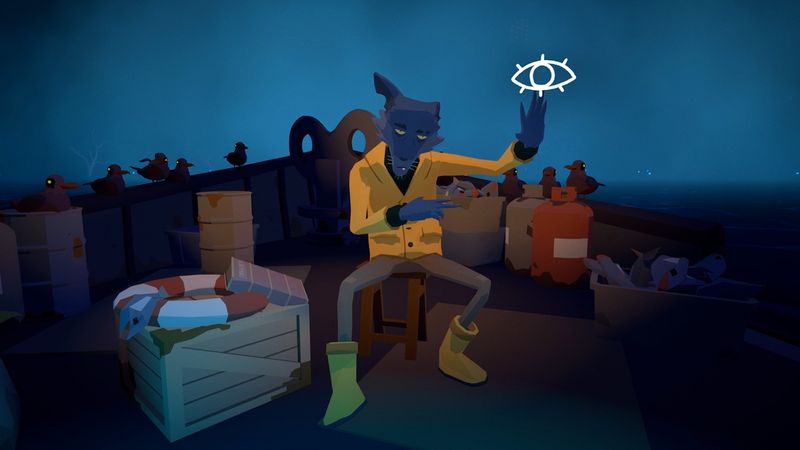
 A few players report blink detection glitches under certain room lights, which can break immersion. But adjusting webcam sensitivity and using the optional infrared calibration filter fixed most issues for me, restoring the seamless experience.
A few players report blink detection glitches under certain room lights, which can break immersion. But adjusting webcam sensitivity and using the optional infrared calibration filter fixed most issues for me, restoring the seamless experience.
 True. The calibration screen helps you hit precise blink windows by showing a live feedback meter. That’s key for any speedrun, ensuring every intentional blink lands exactly when you need it to.
True. The calibration screen helps you hit precise blink windows by showing a live feedback meter. That’s key for any speedrun, ensuring every intentional blink lands exactly when you need it to.
—Gameplay Mechanics—
 The core is blink-to-advance. You literally skip memory frames with each blink, and the system adapts to your blink profile over time. It feels intuitive and deep—every blink feels earned.
The core is blink-to-advance. You literally skip memory frames with each blink, and the system adapts to your blink profile over time. It feels intuitive and deep—every blink feels earned.
 I mapped every memory fragment, discovering that rapid double-blinks reveal sub-memories otherwise hidden. It reminds me of hidden paths in Ori and the Blind Forest, encouraging you to experiment with your blink timing for different outcomes.
I mapped every memory fragment, discovering that rapid double-blinks reveal sub-memories otherwise hidden. It reminds me of hidden paths in Ori and the Blind Forest, encouraging you to experiment with your blink timing for different outcomes.
 No traditional combat or puzzles here. Instead, you “fight” through emotional beats, making each blink a choice in your narrative journey rather than a mechanical input.
No traditional combat or puzzles here. Instead, you “fight” through emotional beats, making each blink a choice in your narrative journey rather than a mechanical input.
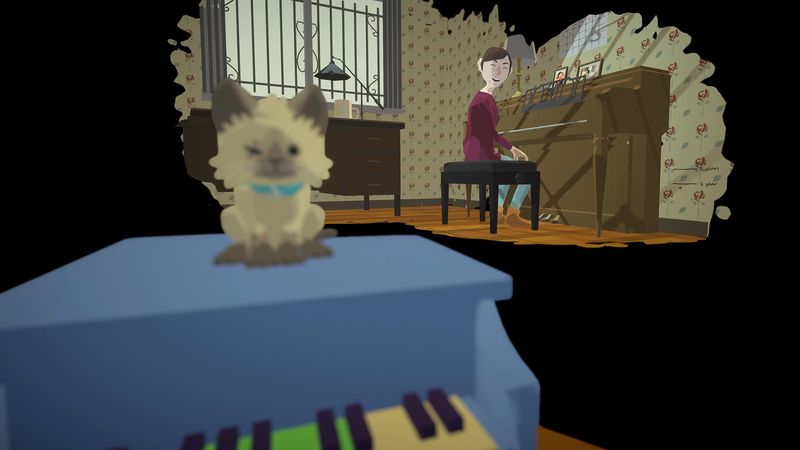
 I compared my run to What Remains of Edith Finch. Both reward exploration of story threads, but Before Your Eyes demands real physical input—blinks become your controller.
I compared my run to What Remains of Edith Finch. Both reward exploration of story threads, but Before Your Eyes demands real physical input—blinks become your controller.
—Story and Narrative—
 The Ferryman guides you after death, ushering you through childhood, love, and career choices in vivid flashbacks. You relive personal regrets, and each memory branch deepens your understanding of the protagonist’s life.
The Ferryman guides you after death, ushering you through childhood, love, and career choices in vivid flashbacks. You relive personal regrets, and each memory branch deepens your understanding of the protagonist’s life.
 Developer interviews reveal they studied grief therapy to craft authentic emotional arcs, and you can feel that research in every regret-filled glance.
Developer interviews reveal they studied grief therapy to craft authentic emotional arcs, and you can feel that research in every regret-filled glance.
 Dialogue reads naturally, never feeling forced. Also, pacing never drags. Each memory drop reveals new lore about life’s regrets, smoothly transitioned by context-sensitive audio cues.
Dialogue reads naturally, never feeling forced. Also, pacing never drags. Each memory drop reveals new lore about life’s regrets, smoothly transitioned by context-sensitive audio cues.
 I love how they hide secrets in blink windows. Rushing or lingering changes your story path, unlocking additional epilogues that hint at redemption or acceptance.
I love how they hide secrets in blink windows. Rushing or lingering changes your story path, unlocking additional epilogues that hint at redemption or acceptance.

—Visuals and Graphics—
 Built in Unity, the game uses a warm color palette and painterly shaders to make memory scenes feel like living watercolors. Dynamic particle effects—like dust motes drifting in sunlight—add subtle realism.
Built in Unity, the game uses a warm color palette and painterly shaders to make memory scenes feel like living watercolors. Dynamic particle effects—like dust motes drifting in sunlight—add subtle realism.
 The hand-painted art style reminds me of Studio Ghibli backgrounds, with layered parallax creating depth. Animations flow at a solid sixty frames per second, even in the busiest memory sequences.
The hand-painted art style reminds me of Studio Ghibli backgrounds, with layered parallax creating depth. Animations flow at a solid sixty frames per second, even in the busiest memory sequences.
 On PC and Mac, I saw no frame drops. Even heavy scenes with overlapping memory echoes ran smooth thanks to efficient draw-call batching.
On PC and Mac, I saw no frame drops. Even heavy scenes with overlapping memory echoes ran smooth thanks to efficient draw-call batching.
 On a mid-range GPU, I held steady 60 fps by capping shadows and bloom. That’s rare for indie narrative titles where visuals often tax hardware.
On a mid-range GPU, I held steady 60 fps by capping shadows and bloom. That’s rare for indie narrative titles where visuals often tax hardware.
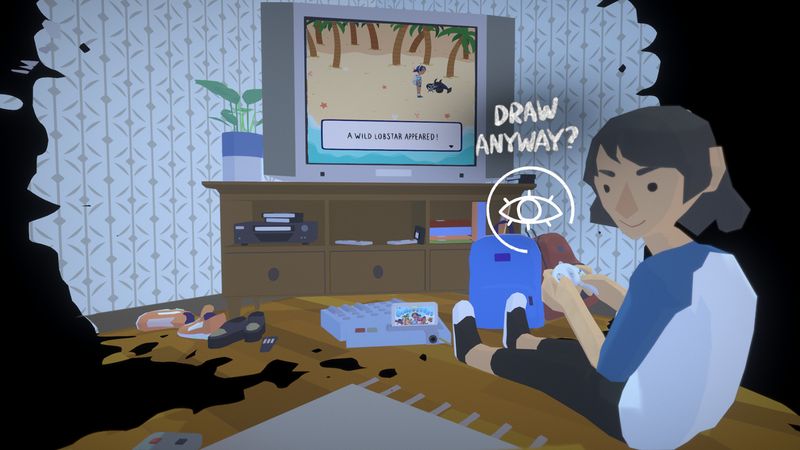
—Audio and Sound Design—
 The Ferryman’s voice acting feels genuine and mournful when needed, grounding the surreal journey. Ambient music swells at key emotional points, dynamically mixing between piano motifs and orchestral swells.
The Ferryman’s voice acting feels genuine and mournful when needed, grounding the surreal journey. Ambient music swells at key emotional points, dynamically mixing between piano motifs and orchestral swells.
 Composer Ben Babbitt crafts minimal piano tracks that swell into orchestral waves keyed to your blink timing. It feels like the score is reading your intentions.
Composer Ben Babbitt crafts minimal piano tracks that swell into orchestral waves keyed to your blink timing. It feels like the score is reading your intentions.
 Sound effects—page turns, subtle whispers, distant thunder—build tension without overwhelming the narrative. Good audio cues guide you intuitively, never needing menus or tutorials.
Sound effects—page turns, subtle whispers, distant thunder—build tension without overwhelming the narrative. Good audio cues guide you intuitively, never needing menus or tutorials.
 I muted music once to hear faint audio clues in the background and discovered hidden memory branches I’d missed, which changed my run’s strategy entirely.
I muted music once to hear faint audio clues in the background and discovered hidden memory branches I’d missed, which changed my run’s strategy entirely.
—Characters and Their Development—
 Your soul becomes the protagonist, and the Ferryman evokes Greek myth with a stern yet caring presence. His lines adapt based on your blink timing, offering personalized guidance.
Your soul becomes the protagonist, and the Ferryman evokes Greek myth with a stern yet caring presence. His lines adapt based on your blink timing, offering personalized guidance.
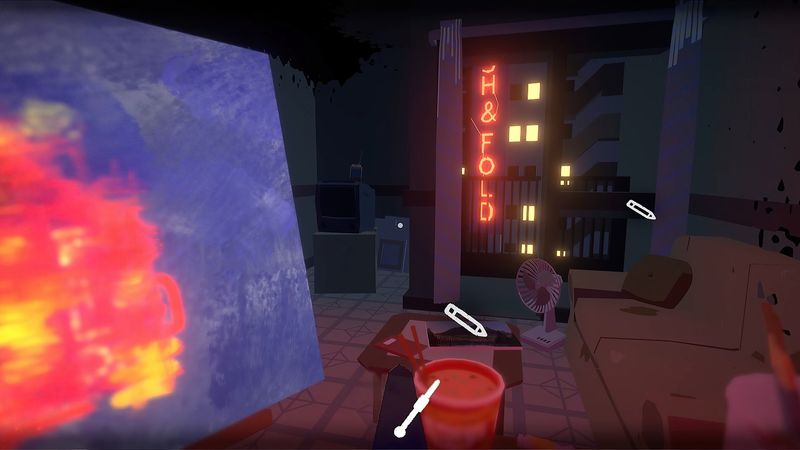
 I noted minor NPCs in memories—family members, old friends, mentors—each with a small arc that ties back to your choices, enriching the narrative tapestry.
I noted minor NPCs in memories—family members, old friends, mentors—each with a small arc that ties back to your choices, enriching the narrative tapestry.
 The game shows representation in subtle ways, nodding to mental health with sensitive visual metaphors—like fracturing glass when regret peaks—handled with respect.
The game shows representation in subtle ways, nodding to mental health with sensitive visual metaphors—like fracturing glass when regret peaks—handled with respect.
 Character arcs link to blink events, so hitting secret windows reveals deeper backstory layers, making each replay uncover new emotional truths.
Character arcs link to blink events, so hitting secret windows reveals deeper backstory layers, making each replay uncover new emotional truths.
—Challenge Level—
 There’s no fight difficulty, but the emotional weight offers its own challenge.
There’s no fight difficulty, but the emotional weight offers its own challenge.
 Some players find adaptive blink windows too tight, especially in high-tension scenes.
Some players find adaptive blink windows too tight, especially in high-tension scenes.

 Accessibility options let you adjust blink sensitivity, enable visual cues, or toggle extended blink windows, welcoming players of all skill levels.
Accessibility options let you adjust blink sensitivity, enable visual cues, or toggle extended blink windows, welcoming players of all skill levels.
 Speedrunners can disable hints and calibration guidance, upping the challenge for those chasing world records and mastering every blink-based nuance.
Speedrunners can disable hints and calibration guidance, upping the challenge for those chasing world records and mastering every blink-based nuance.
—Replay Value—
 You unlock hidden memories on replay, with over a dozen secret nodes to discover. The game’s short length—around 90 minutes—invites multiple playthroughs.
You unlock hidden memories on replay, with over a dozen secret nodes to discover. The game’s short length—around 90 minutes—invites multiple playthroughs.
 Achievements for every hidden branch push completionists like me to replay, and each branch adds context that reshapes earlier memories.
Achievements for every hidden branch push completionists like me to replay, and each branch adds context that reshapes earlier memories.
 It sits well alongside What Remains of Edith Finch and Firewatch for replayable narratives. You’ll spot new details—like extra dialogue lines or background animations—each time.
It sits well alongside What Remains of Edith Finch and Firewatch for replayable narratives. You’ll spot new details—like extra dialogue lines or background animations—each time.
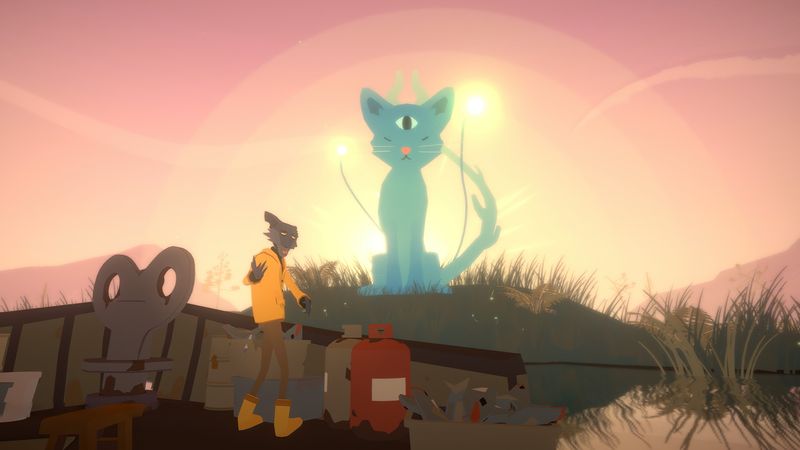
 I found time runs shorter once I knew all blink tricks, perfect for routing emotional reveals in sub-20-minute speedruns.
I found time runs shorter once I knew all blink tricks, perfect for routing emotional reveals in sub-20-minute speedruns.
—Final Thoughts—
 Before Your Eyes stands out by tying real blinks to story, making every blink matter. It feels fresh in narrative games, setting a new bar for interactive storytelling.
Before Your Eyes stands out by tying real blinks to story, making every blink matter. It feels fresh in narrative games, setting a new bar for interactive storytelling.
 Also it builds on the studio’s pedigree—following their IndieCade award for Close Your Eyes—and pushes design in a bold new direction where emotion drives mechanics.
Also it builds on the studio’s pedigree—following their IndieCade award for Close Your Eyes—and pushes design in a bold new direction where emotion drives mechanics.
 Hardcore fans of story games should try it. It inspires new design directions that blend physical input with narrative depth.
Hardcore fans of story games should try it. It inspires new design directions that blend physical input with narrative depth.
 Every blink matters. That focus on speed and emotion makes it unique.
Every blink matters. That focus on speed and emotion makes it unique.
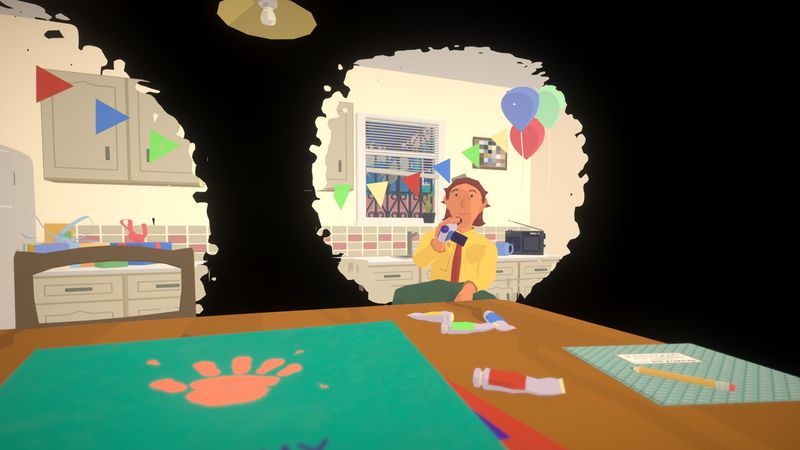
 Discover unforgettable narrative-driven adventures with Journey’s emotive indie odyssey, featuring breathtaking visuals and intuitive controls, seamlessly leading you into the intimate family vignettes of What Remains of Edith Finch, where each bite-sized story reveals hidden depths. Then, immerse yourself in Firewatch’s first-person Wyoming forest drama, rich with character dialogue and atmospheric tension, before shaping a time-bending teen saga in Life Is Strange, where every choice ripples through a poignant coming-of-age tale. Finally, explore the haunting empty halls of Gone Home, a narrative puzzle experience that rewards curiosity with family secrets waiting to be uncovered.
Discover unforgettable narrative-driven adventures with Journey’s emotive indie odyssey, featuring breathtaking visuals and intuitive controls, seamlessly leading you into the intimate family vignettes of What Remains of Edith Finch, where each bite-sized story reveals hidden depths. Then, immerse yourself in Firewatch’s first-person Wyoming forest drama, rich with character dialogue and atmospheric tension, before shaping a time-bending teen saga in Life Is Strange, where every choice ripples through a poignant coming-of-age tale. Finally, explore the haunting empty halls of Gone Home, a narrative puzzle experience that rewards curiosity with family secrets waiting to be uncovered.

